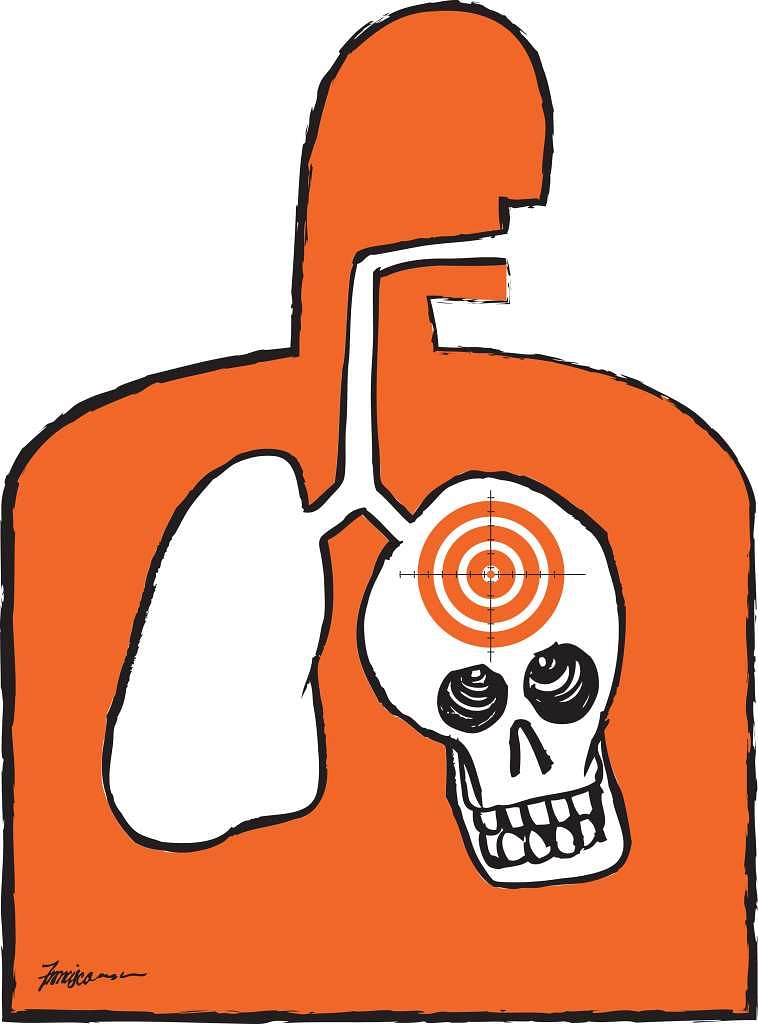The timing - 50:39 seconds - flashed across the display board at the Olympics Aquatic Stadium in Rio de Janeiro, Brazil.
A new Olympic record had been set for the men's 100m butterfly.
And a new Olympic swim champion was crowned: Singapore's Joseph Schooling.
For me, that moment on Aug 13 ranks as one of the most memorable for the year 2016.
The 50:39 timing has been etched in my mind since. This year, I shall be going after that record.
No, I am not a great swimmer. I am fairly mediocre, to be honest. And I have not even mastered the butterfly stroke.
But what I shall be trying to do is to push the median survival of patients with advanced lung cancer to 50.39 months. And beyond.

I believe this can be achieved.
It wasn't that long ago, about a decade, when the median survival of patients with advanced lung cancer in Singapore was closer to five months, rather than 50.
Median survival describes a sort of average life span that most patients with advanced lung cancer would have.
Back then, with each patient I saw, I would agonise over the decision of whether it was even worth his while to receive chemotherapy, given the rather short life expectancy and possible side effects from the treatment.
JAMMING THE CANCER SWITCH
"How things have changed," I remarked in my first consultation with Ms T.
Ms T is a middle-aged Chinese woman who is down with the final stage - stage 4 - of lung cancer.
Her cancer had spread beyond the confines of her lungs and into the lining of the inner surface of the chest cavity.
This had provoked a copious amount of fluid to form in the chest cavity, flooding her right lung.
She almost suffocated.
The emergency department doctor, who first saw her, immediately arranged for her to be admitted to hospital.
A tube was inserted into her right chest to drain the fluid. This brought relief to her severe breathlessness.
A biopsy of the right-lung tumour was dispatched to the laboratory for study. The diagnosis of lung cancer was confirmed.
When Ms T first consulted me on her diagnosis, I had to correct her overtly pessimistic view that she had only a few months to live, based on what she had learnt from her own reading.
As I said, much has changed.
Precision medicine and targeted therapy have brought a revolution to the treatment of advanced lung cancer over the last decade.
A genetic analysis of Ms T's cancer biopsy showed that the cancer cells carried a mutation in the receptor on the cell surface - the epidermal growth factor receptor (EGFR).
This receptor functions like a growth switch that, when "turned on", sends signals to the command centre in the nucleus of the cancer cell to drive its growth.
A mutation of the EGFR effectively jams this switch in the perpetual "on" position.
Cancer doctors now have at their disposal targeted drugs that are able to turn off this growth switch.
The first generation of such drugs entered clinical use about a decade ago.
Ms T was started on treatment with an improved second- generation member of this family - afatinib.
Two months into her treatment, she was close to complete remission and the residual fluid in her chest cavity had disappeared.
EGFR mutations are not rare in lung cancers, especially among East Asian patients.
Such mutations are also more commonly seen in non-smokers.
For lung cancer patients of Asian ethnicity who have never smoked, as in the case of Ms T, the probability of finding such a treatable mutation is more than 50 per cent.
In the last few years, clinical studies have frequently reported a median survival rate of above 30 months, and sometimes 40 months, in this group of patients with advanced lung cancer.
Last month, the Health Sciences Authority of Singapore gave the nod to the third-generation version of this drug - osimertinib - that may be useful as a follow-up treatment after therapy with either the first- or second-generation drugs.
This would potentially add another year of cancer control.
This has affirmed my belief that a median survival of 50 months can be reached.
In the years ahead, Schooling will be aiming to go under 50:39, while I shall be gunning to go above 50 months.
Let's go for it, Joseph.
•Dr Wong is a medical director and consultant medical oncologist at The Cancer Centre, Singapore Medical Group. He has been looking after cancer patients for the past 20 years. He is also an adjunct clinician scientist in the Institute of Bioengineering and Nanotechnology at the Agency for Science, Technology and Research.
